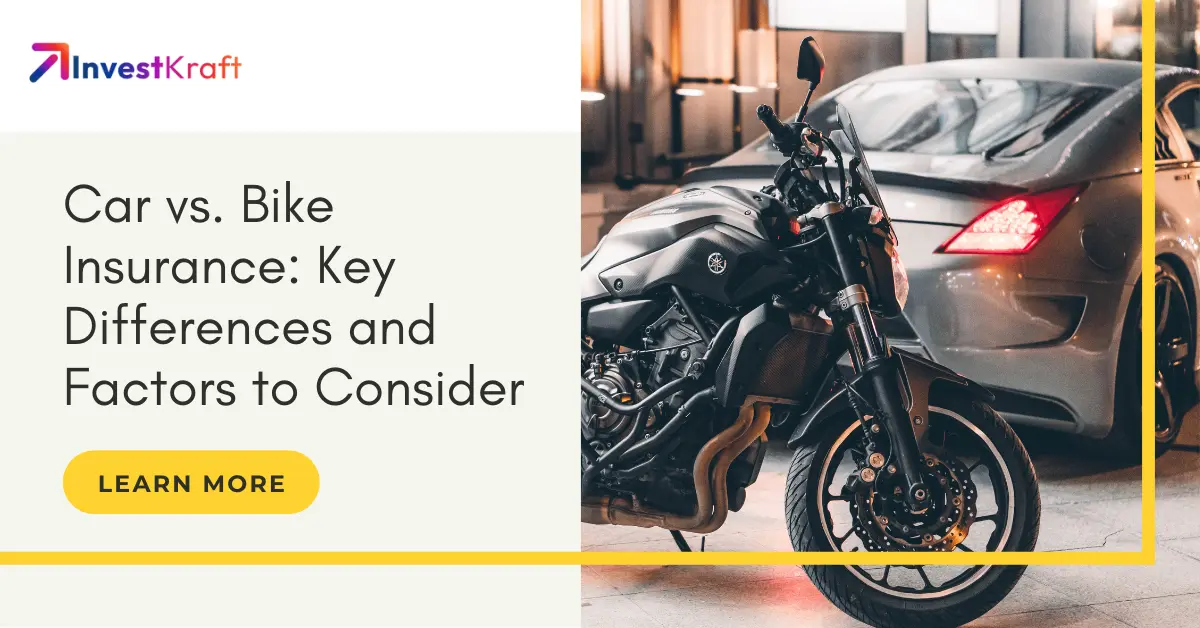Everything You Need to Know About Car Insurance: Coverage, Claims, and Premiums

Legally speaking car insurance is an agreement or contract between two parties, one is the car owner and the other is the insurance company. As a buyer, you agree to pay the annual premium. In return, the company provides you and your car risk cover against natural and man-made calamities under a comprehensive car insurance policy only. You do have the option to go for third-party liability insurance only by paying a comparatively low premium. Car insurance is known to act as a protection shield against uncertainties or accidents causing damage to your vehicle or bodily injury.
Digitization has contributed a lot and made insurance accessible to all. Today, you can buy car insurance online with a few clicks of your mouse. You can alternatively use your smartphone to use the dedicated App of Best Car Insurance company to purchase or renew your insurance. There is less of a chance of missing the renewal date as you get reminders from different sources. Moreover, you get a free hand to avail portability in case you are not satisfied by your service provider. Car Insurance features can vary based on your choices. But standard car insurance covers the key essentials of third-party liability made mandatory by law in India.
In this blog content, you will get an understanding of car insurance, how car insurance works, kit key components, factors impacting car insurance premiums, ways to claim, and more. So let us begin the tour.
Key Components of Car Insurance
- Liability Coverage: This is often required by law and covers injuries or damages you cause to others in an accident. It includes bodily injury liability for medical expenses and property damage liability for repairs to others' property.
- Medical Payments or Personal Injury Protection (PIP): In some states, this coverage is mandatory. It pays for medical bills and related expenses if you or your passengers are injured in your car, regardless of who is at fault.
- Uninsured/Underinsured Motorist Coverage: This protects you if you're involved in an accident with a driver who has no insurance or insufficient coverage.
Car insurance not only covers damages from accidents but also incidents like theft, vandalism, and natural disasters. It applies to various vehicles, including cars, motorcycles, and commercial vehicles used for business purposes. The policy typically covers you, your family members, and others driving your car with your permission. However, it usually doesn't cover commercial activities like ride-sharing services unless specified.
What are the Factors Influencing Car Insurance Premiums?
The below-mentioned Factors Influencing your Car Insurance Premium. Have a look at them:
- Insured Declared Value (IDV): This represents your car's current market value. A higher IDV means a higher premium, as it reflects the maximum amount you'd receive if your car is totaled.
- Coverage and Add-Ons: Opting for additional coverages or add-ons, such as zero depreciation or engine protection, will increase your premium. It's advisable to choose add-ons for car insurance that suit your specific needs.
- Age of the Car: Older cars typically have lower premiums due to depreciation, as their market value decreases over time.
- Safety and Security Features: Installing certified anti-theft devices can lower your premium because they reduce the risk of theft. Ensure these devices are approved by the Automotive Research Association of India (ARAI).
- Claim History: If you haven't made any claims during the policy period, you may be eligible for a No Claim Bonus (NCB), which provides a discount on your premium upon renewal.
About Car Insurance Pricing or Calculation?
Understanding how car insurance premiums are determined and knowing the steps to file a claim can help you make informed decisions and ensure you're adequately protected.
How Is Car Insurance Priced or Calculated?
In India, car insurance is primarily divided into two types: Third-Party Liability Insurance and Comprehensive Insurance.
- Third-Party Liability Insurance: The Insurance Regulatory and Development Authority of India (IRDAI) sets the premium rates for third-party liability insurance. These rates are standardised across all insurance companies and may be revised annually. This means that no matter which insurer you choose, the cost for this coverage remains consistent.
- Comprehensive Insurance: This type of policy offers broader protection, covering both third-party liabilities and damages to your vehicle. Insurance companies have the flexibility to set their premiums for the own-damage portion of comprehensive policies. However, they must adhere to IRDAI's guidelines for the third-party component.
Further Reading: Third-Party vs Comprehensive Car Insurance: Which is Right for You?
What are the factors that impact your car insurance premium?
The below-discussed factors influence the premium of your car:
- Insured Declared Value (IDV): The current market value of your car. A higher IDV leads to a higher premium.
- Vehicle's Age and Model: Older cars or models with higher safety ratings may attract lower premiums.
- Add-On Covers: Additional protections like zero depreciation or engine protection will increase the premium.
- Geographical Location: Areas with higher traffic density or crime rates may result in higher premiums.
- Driver's Profile: Your age, driving history, and previous claims can impact the premium amount.
Insurance companies also consider market competition and may adjust their premiums accordingly to attract customers.
How to Make Car Insurance Claims?
Filing a car insurance claim involves different procedures depending on the nature of the claim:
1. Own Damage Claims: If your vehicle is damaged due to an accident, natural calamity, or other covered events:
- Notify Your Insurer: Contact your insurance company promptly through their customer service number, mobile app, or website.
- File a Claim: Provide necessary details about the incident, including date, time, location, and a description of the event.
- Inspection: The insurer will assign a surveyor to assess the damage.
- Repair: Once approved, you can get your vehicle repaired at a network garage for cashless service or any garage of your choice for reimbursement.
- Settlement: After repairs, submit the bills to the insurer (if not cashless), and they will process the payment as per the policy terms.
2. Third-Party Claims: If you are responsible for an accident causing damage or injury to a third party:
- Inform Your Insurer: Notify your insurance company about the incident.
- FIR: The third party should file a First Information Report (FIR) with the police.
- Legal Proceedings: The case will be taken to the Motor Accidents Claims Tribunal, which will determine the compensation amount.
- Settlement: Your insurer will pay the compensation directly to the third party as decided by the tribunal.
It is thus important to report incidents promptly and provide accurate information to facilitate a smooth claims process.
Concluding Thought
To conclude, Car insurance is a contract between you and an insurance company that protects you financially if your car is involved in an accident or suffers damage. You pay a regular fee, called a premium, and in return, the insurer agrees to cover specific losses as outlined in your policy. Policies typically last six or twelve months and can be renewed upon expiration.
Before buying car insurance, it’s helpful to understand the difference between comprehensive and third-party insurance. Having insurance isn’t just a requirement - it’s a financial safeguard when you're out on the road. You can read the shared blog for more information on Motor Insurance – Types of Coverage, Premium Calculation, & Consequences of Driving Uninsured. Remember, in the unfortunate event of an accident, whether it’s your fault or someone else’s, car insurance helps cover the costs of repairs, getting your vehicle back in shape, and meeting any legal obligations.
If you wish to enjoy a hassle-free car insurance renewal experience, consider visiting Investkraft accessible 24x7.
Frequently Asked Questions (FAQs):
Q1. What is the Insured Declared Value (IDV) in car insurance?
- IDV is the current market value of your car and represents the maximum sum assured by the insurer in case of total loss or theft.
Q2. Can I choose my own IDV?
- Yes, insurers allow you to select an IDV within a specified range. However, choosing a lower IDV to reduce premiums can result in lower claim amounts.
Q3. What are add-on covers?
- Add-ons are additional benefits you can purchase with your comprehensive policy, such as zero depreciation, engine protection, or roadside assistance.
Q4. How does No Claim Bonus (NCB) affect my premium?
- NCB is a discount on your premium for each claim-free year. Accumulating NCB can significantly reduce your premium over time.
Q5. What should I do immediately after an accident?
- Ensure everyone's safety, inform the police if necessary, gather evidence (photos, witness details), and notify your insurer as soon as possible.
Q6. What is a premium in car insurance?
- A premium is the amount you pay to the insurance company for your car insurance policy. It's usually paid monthly, semi-annually, or annually.
Q7. What does Insured Declared Value (IDV) mean?
- IDV is the current market value of your car. It's the maximum amount your insurer will pay if your car is stolen or completely damaged.
Q8. How can I lower my car insurance premium?
- You can reduce your premium by installing approved safety devices, maintaining a good driving record, opting for a higher voluntary deductible, and avoiding unnecessary add-ons.
Q9. What is a No Claim Bonus (NCB)?
- NCB is a discount on your premium for not making any claims during the policy period. The discount increases with each consecutive claim-free year.
Q10. Does car insurance cover natural disasters?
- Yes, comprehensive car insurance policies typically cover damages caused by natural disasters like floods, earthquakes, and storms. It's important to review your policy to understand the extent of coverage.

Author: Rajesh Mishra
Rajesh Mishra is a professional and multilingual writer with over 12+ years of versatile experience in content writing.
He has crafted compelling narratives across a diverse array of industries, including BFSI, fintech, IT, pharmaceuticals, e-commerce, education, fashion, and more. He is a commerce graduate from Mumbai University. His strong academic foundation and passion for storytelling enable him to engage audiences and deliver impactful content.
He is adept at transforming complex concepts into clear, relatable language, making his work accessible to both, industry professionals and everyday readers. He thrives in dynamic environments, leveraging his extensive knowledge to create articles, blogs, whitepapers, and marketing materials that resonate with target audiences. Driven by a commitment to excellence and a keen eye for detail, Rajesh Mishra continuously explores emerging trends and technologies, ensuring his content remains relevant and thought-provoking.

















